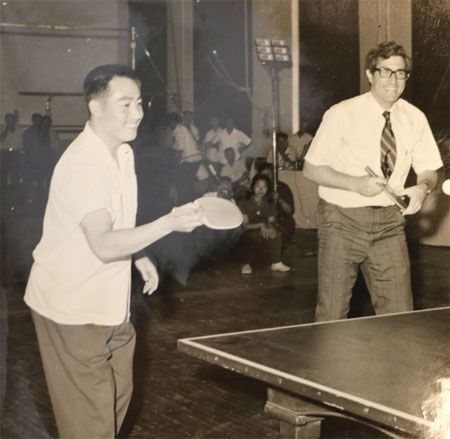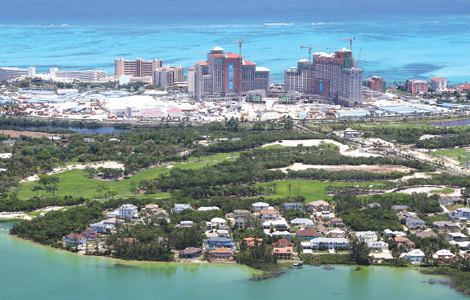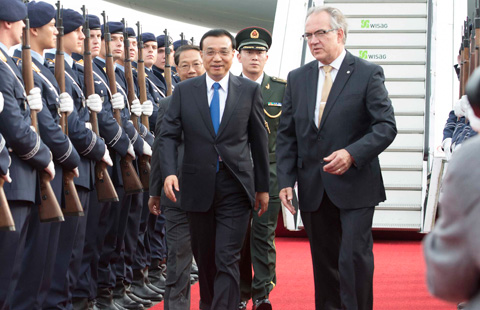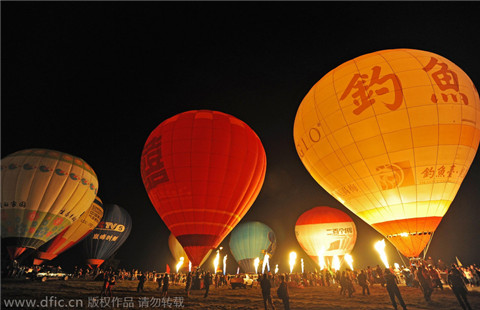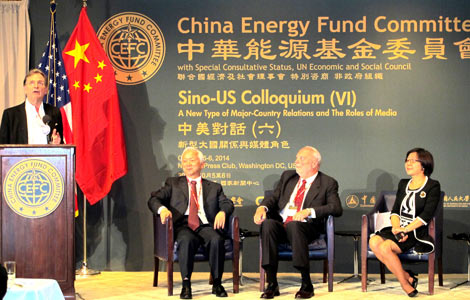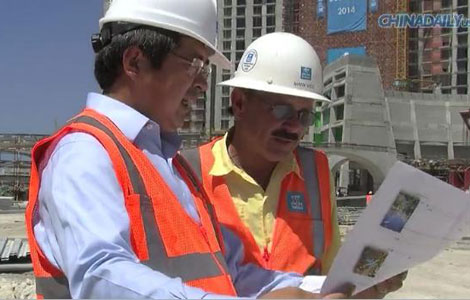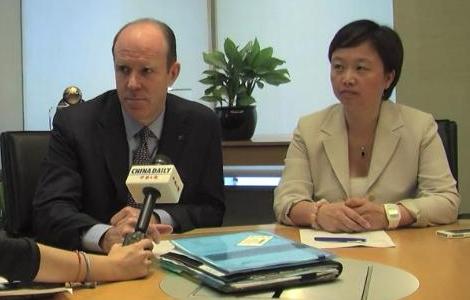A lifetime understanding China politics
Updated: 2014-09-19 12:12
By Chen Weihua in Washington(China Daily USA)
|
||||||||
|
Richard Solomon (right), then a staff member of the National Security Council, plays pingpong in Beijing with Zhuang Zedong, a world's champion in table tennis, in this file photo taken in June 1972 when Solomon went to China with National Security Advisor Henry Kissinger. Provided to China Daily |
But it was exactly because of his shrewd understanding of Chinese politics that in 1971, then National Security Advisor Kissinger invited him to join as a staff member of the National Security Council (NSC).
Solomon, then teaching Chinese politics at the University of Michigan, started his work in September that year, two months after President Richard Nixon announced Kissinger's secret trip to China.
"I was as surprised as everybody else," Solomon recalled of Nixon's announcement on the evening of July 15, 1971.
At the NSC, Solomon's job was to help Kissinger and others understand what was going on in China.
"Basically my job was to help understand the politics as best as we could. There was lots we didn't understand," he said, citing the Lin Biao case that took place also in September 1971. Lin was Mao's right hand who died in a plane crash in Mongolia after a failed coup.
At the NSC, Solomon also did some speech writing for Nixon. While Nixon's famous quote of Chairman Mao Zedong's poem "Seize the day, seize the hour" has often been brought to life, including in John Adams' opera Nixon in China, it was Solomon, who had studied Mao's poems, who put it in Nixon's speech.
With his training in China studies and interacting with many Chinese, Solomon was one of the first Americans who engaged in exchanges with people from the Chinese mainland when he accompanied the Chinese ping-pong team during its visit to the US in April, 1972, less than two months after Nixon made his historic trip to China to sign the Shanghai Communiqu.
First trip
When Solomon made his first trip to China in June 1972, following his boss Kissinger, he got a chance to play ping-pong side-by-side with Zhuang Zedong, the world table tennis champion who had developed a friendship with Solomon when leading the Chinese ping-pong delegation to the US that April.
Solomon's discoveries in China during the first trip did not surprise him very much. Instead, he found that from his previous stay in Hong Kong and Taiwan, there was a certain atmosphere in Chinese society that seemed familiar to him.
Solomon had spent two years in Hong Kong and Taiwan in the mid and late 1960s, studying Chinese language while interviewing people coming out of the Chinese mainland, about issues such as the food crisis there.
"These were our efforts to understand China, looking over the fence," Solomon said. At that time, Americans were not allowed to travel to the Chinese mainland.
Solomon's first book, Mao's Revolution and the Chinese Political Culture, was based on his interviews of more than 100 Chinese about their ideas of politics. Solomon said it was mainly because his professor, Lucian Pye, a noted professor of Chinese politics at MIT who was born in China of American missionary parents, believed that culture in the broad sense has an influence on political behavior.
Early interest in China
In fact, Solomon's interest in China was closely related to Pye. As an undergraduate at MIT, Solomon attended Pye's class on Asian politics in 1959 when China and the Soviet Union started their big polemic about whether the biggest problem in the communist world was leftism or rightism.
Solomon also sought to understand the issue better with another MIT professor, William Griffith, a specialist on communist politics.
"So in 1960 when I started my graduate work, I was very interested in China," Solomon said.
One day in 1961 when Solomon went to Pye's office to express his interest in China and specializing in the field, Pye was very excited. "Very good. Everbody studies Russia, but China would be a very worthwhile area to focus on," Solomon recalled Pye saying at the time.
While the two were talking, Walt Rostow, then head of policy planning at the US State Department who later became National Security Advisor, called Pye to see if anyone could do a study on how China was going to manage its food crisis at the time. Often known in China as the Three Years of Natural Disasters, the famine in China in the early 1960s was caused largely by the Great Leap Forward movement, an irrational industrialization and collectivization campaign in the late 1950s.
While Pye thought Solomon might work on the project, he also believed the young man should study more about China and the Chinese language. So he arranged for Solomon to attend Chinese language classes at Yale University in the summer of 1961, where people like Jay Rockefeller, now a senior US Senator from West Virginia, were also attending.
Solomon also went to Harvard to take classes with famous China scholars such as John Fairbank and Benjamin Schwartz.
A
Most Viewed
Editor's Picks

|

|

|

|

|

|
Today's Top News
Premier pushes innovation on German visit
Beijing to keep the lid on air pollution for APEC
Li arrives in Germany, first leg of Europe trip
China's economy surpasses US
IMF: Shadow banking filling gaps
China's status prominent at 'Big Four' firm Ernst & Young
US Ebola patient dies
China's role grows in Gates Foundation tech push
US Weekly

|

|
